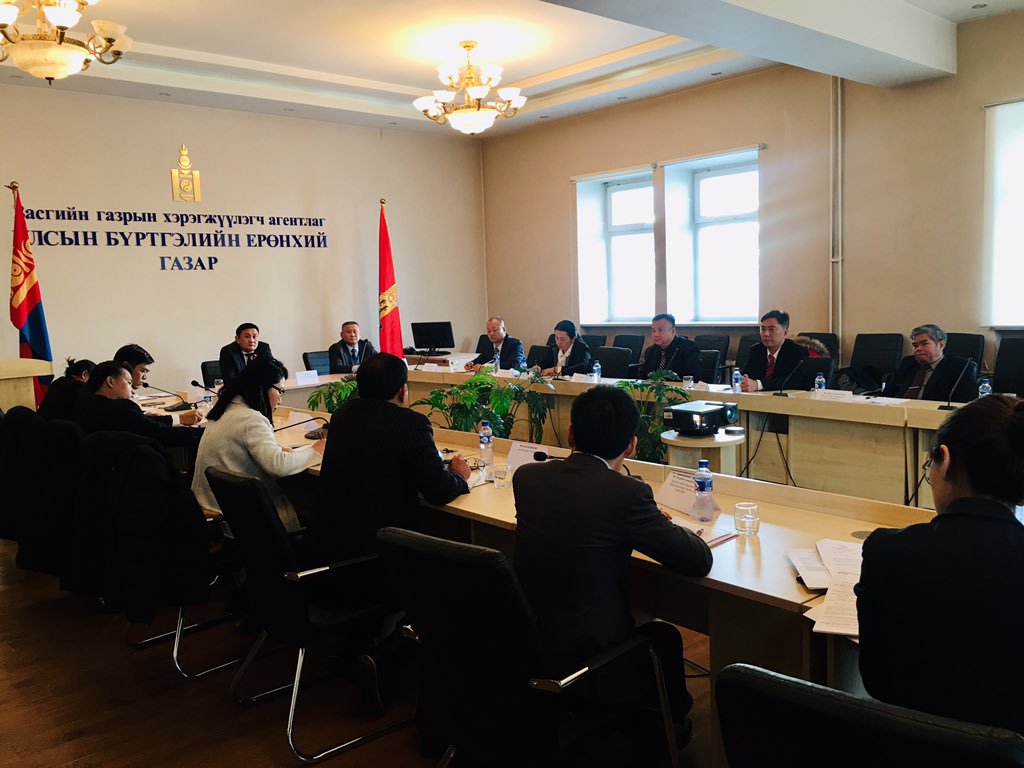
A shared majority Buddhist religious heritage, landlocked geographic status, communist histories and a border with China made Mongolia the ideal location for a Lao study tour.
Mongolia and Laos share unique commonalities—both are landlocked countries with a shared Buddhist heritage and historic communist ties. Unlike Mongolia, which established a space for civil society following it’s 1992 democratic transition, civil society organizations (CSOs), called non-profit associations (NPAs), did not exist in Laos until 2009.
The Mongolian experience is a positive example of how the Lao government can work with NPAs to achieve development goals.
In partnership with IRI, a delegation of 12 Lao Ministry officials and civil society representatives traveled to Ulaanbaatar to learn about Mongolia’s legal framework for CSOs, as well as successful government collaboration for development initiatives within Mongolia’s vibrant civic space. Engagement between government and civil society is essential to Laos’ sustainable development process, as is establishing more inclusive, participatory and responsive political institutions.
Rethinking Civil Society Framework
Throughout the exchange, the Lao delegation was introduced to new concepts for structuring the framework of civil society. During a dialogue with former Member of Parliament Burmaa Radnaa, a Lao delegate shared their goal for the exchange: “My objective for this exchange is to learn from Mongolia’s experience, as we refine our legislative framework [for civil society] in Laos.” During a discussion with the Department of the Ministry of Justice and Internal Affairs (MoJIA), the director advised the Lao delegates on how Mongolia has benefited from cooperation with civil society in the national development process.
Another important concept from the exchange was the Mongolian government’s ability to leverage civil society in development initiatives. The delegation learned about how Mongolian CSOs have participated in policymaking. For example, Mongolian CSOs drove the drafting of the Law of Mongolia on Glass Accounts (“Accounts Law”), which promotes transparency and the efficient use of government funds by requiring government agencies to make budgetary and financial information available to the public.
Further highlighting the possibilities of cooperation, the Head of the Mongolia-Laos Parliamentary Caucus stated to the delegation: “CSOs are an essential part of democracy because they are able to reach areas that the government cannot.”
Upon returning to Laos, delegates expressed their willingness to introduce lessons learned during the exchange with their government and civil society peers—even sharing lessons learned from the exchange at the Laos Government and Civil Society Organizations Annual Meeting.
IRI facilitated an after-action reflection session in Vientiane, Laos, wherein delegates identified lessons learned from the outbound study visit. Key lessons included the efficiency of CSO registration in Mongolia, the symbiotic relationship between Mongolian government officials and civil society, as well as the effective coordination within Mongolian civil society. Delegates emphasized the benefit of applying these lessons to the Lao context. For example, delegates encouraged increased collaboration between the Lao government and civil society as a way to address community needs. In the same vein, Lao delegates realized the potential impact civil society groups can have on policy development if they coalesce by sector and coordinate with their government line ministry counterparts.
The delegates’ marked enthusiasm for sharing their ideas on how to improve coordination between Lao civil society and the government is a testament to the success of the study tour to Mongolia. As a result of the tour, delegates representing both the government and civil society ultimately found a platform for meaningful discussion about how engagement could be improved and expanded upon in the future.
Top